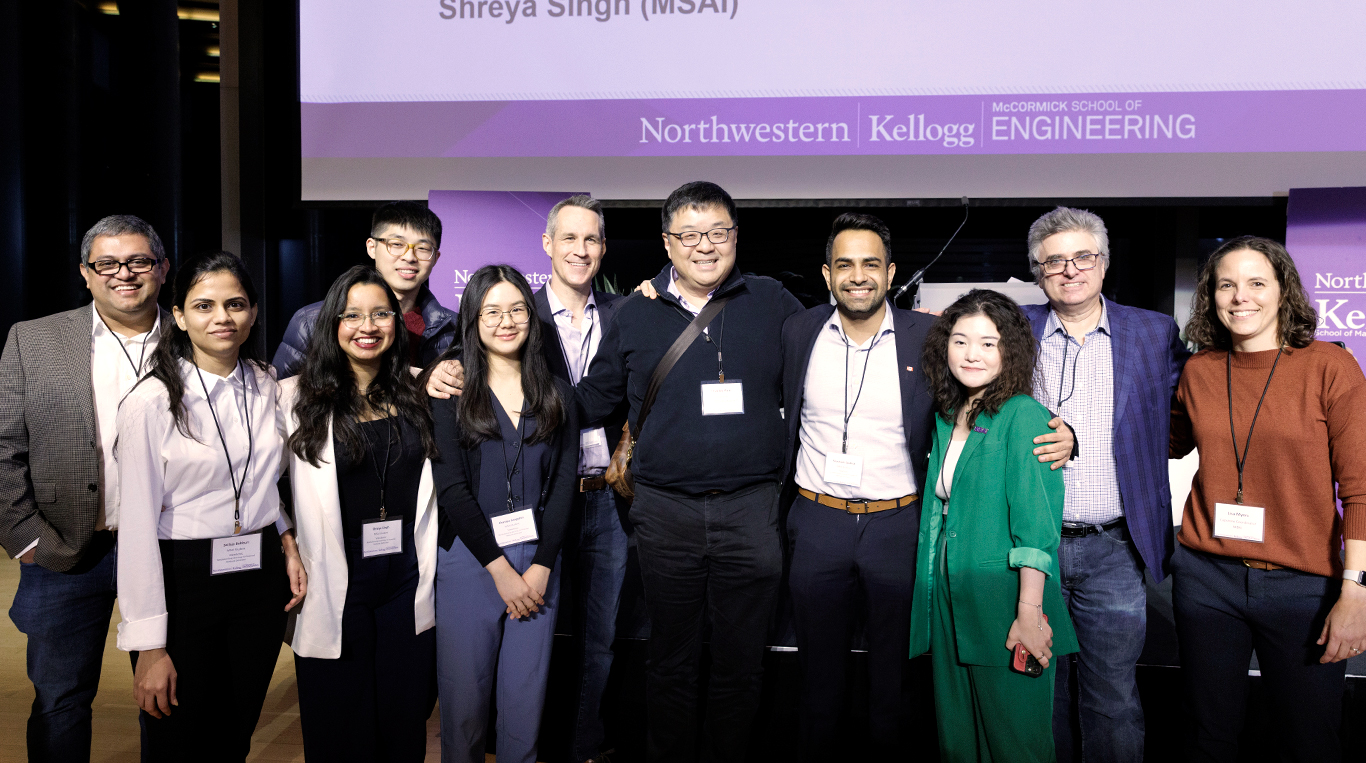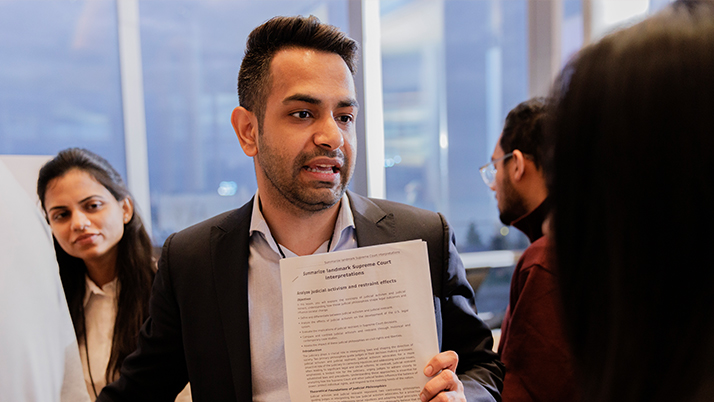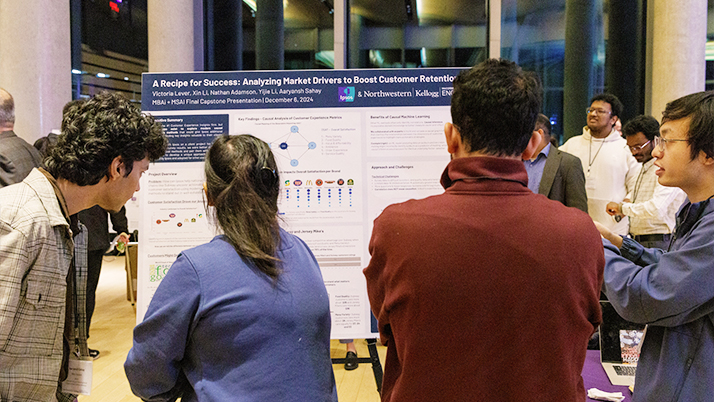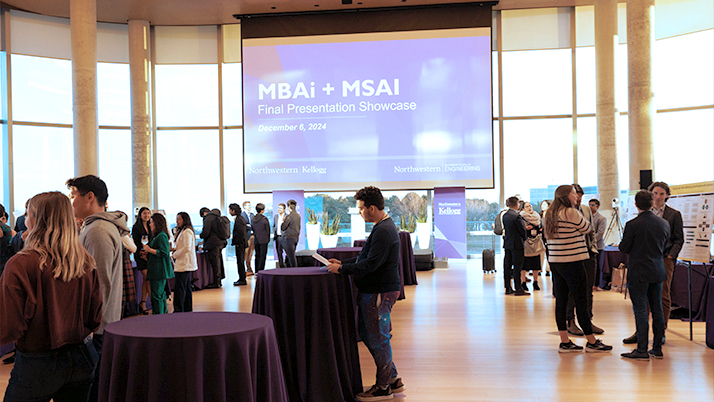Designing solutions for artificial intelligence-based problems

Shashank Sabhlok ’24 MBAi Program understands the value and importance of textbooks, but he also knows they can quickly become outdated and underutilized, particularly in modern classrooms.
What if artificial intelligence (AI) could be used to create more flexible, relevant content for teachers to use with their students? That was the question he and a team of students from Northwestern’s MBAi Program — a joint-degree program offered between Northwestern’s Kellogg School of Management and the McCormick School of Engineering — and Northwestern Engineering’s Master of Science in Artificial Intelligence (MSAI) tackled for their final capstone project.
Sabhlok, his MBAi peer Fergie Liang ’24 and MSAI students Sailaja Bobburi ’24, Chanipa Sangphet ’24 and Shreya Singh ’24 created a tool that enables teachers to generate materials targeted to their immediate teaching goals and students while promoting alignment to state-level educational standards. In effect, it is a textbook of the future. “Working on this project was very similar to what it's like working in the real world,” Sabhlok said. “This gave us a true opportunity to make a working product.” The project was sponsored by ViewSonic, a visual and EdTech solutions company, and named the top project at the MBAi + MSAI Capstone Showcase.
The annual event featured 16 teams made up of MBAi and MSAI students who worked on AI-focused projects posed by companies that ranged from Fortune 100 companies to startups. The event was open to current students, alumni, faculty, capstone sponsors and industry representatives. Each team presented a poster about their project and shared information about their work during the event. Attendees were then asked to vote for their favorite project.
Aastha Khatgarh ’24 MSAI said the opportunity to collaborate on real problems faced by organizations made the capstone experience more meaningful. “This is a real-world problem for a company that's actually facing this issue,” said Khatgarh, who used large language models to understand warranty claims data for a security company. “With our recommendation, they can genuinely improve their products, increase their revenue and decrease their spending.”
Sai Chakradhar ’24 MSAI agreed. “This was basically like an internship,” he said. “We were following up with the client, understanding the client requirements, and working toward the main objective presented to us.”
The MBAi program is designed to produce leaders with strong technical knowledge of AI and the strategic insight to deploy technology practically and effectively within an organization. The MSAI program is a professional master’s program that prepares students to create new AI systems while also understanding the environments where the systems will be deployed.
Creating teams with students from both programs is meant to resemble what it is like to work in AI-centered professional roles, where engineers and business-oriented product managers frequently collaborate. The opportunity to work with students from the other program was one of the most valuable parts of the experience. “From the MSAI students, we learned tricks of how to make things work from a technology standpoint,” Sabhlok said. “It was great to see them come up with quick, swift technical solutions to problems we experienced or the feedback we got from teachers.”
Khatgarh enjoyed helping guide her MBAi colleagues, just as she appreciated being able to learn from them. “As an engineer, I look at a problem and I want to deliver a solution, but every solution should have a business value,” Khatgarh said. “When you link a solution to its actual business value — that's when it becomes a product.”
Photos from the 2024 MBAi and MSAI capstone showcase
Read next: 6 benefits I’m getting from the MBAi Program



